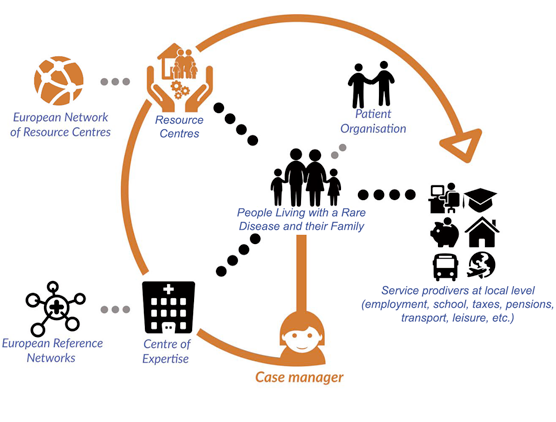INNOVCare is a 3-year European project that addresses the social challenges faced by people living with rare complex conditions.
INNOVCare (Innovative Patient-Centred Approach for Social Care Provision to Complex Conditions) aims to bridge the gap in the co-ordination between medical, social and support services in the European Union Member States.
This EU-funded project will ensure that the social needs of people living with a rare disease are voiced and taken into account. It will also support the EU and other Member States in implementing necessary structural reforms in social care systems by developing and testing a holistic, person-centred care pathway. This will mean strengthening partnerships between care providers – public, private and civil society organisations.
INNOVCare will run from October 2015 until October 2018.

